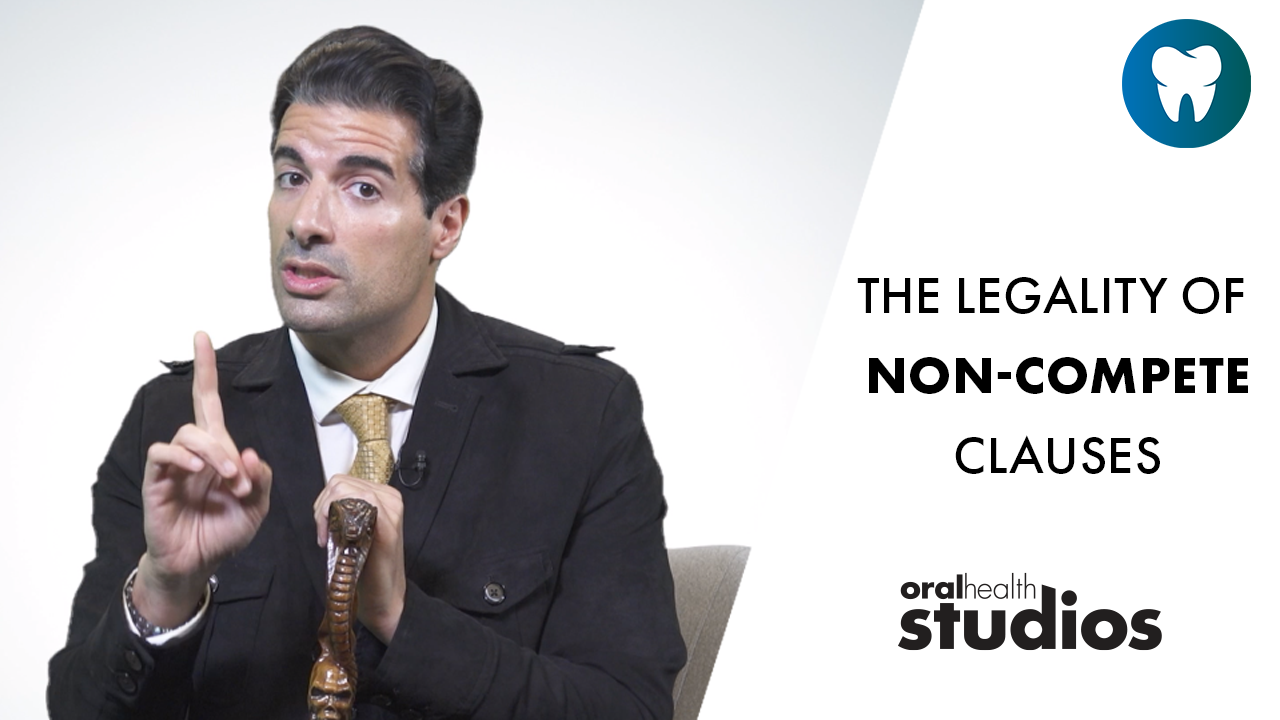So, what do you do?” is a question often asked at social gatherings.
Everyone has a story. Few of us have actually thought one out. How might we answer? Does the simple response “I’m a dentist” tell us anything about who we really are? Might it even arouse unpleasant thoughts? The unfortunate reality is that the public perception of our profession has been on the decline for years. I’ve considered this recently, and have given thought to how I might respond, with the goal being to reflect positively on what I do, elicit curiosity and carry the conversation forward. “I am a health care professional. I try to assist my patients in keeping their teeth comfortable and healthy, offering preventive strategies and intercepting early problems that may progress into more serious health related situations, discomfort and expense in a warm and caring environment. I have been doing this for over 40 years along side my partner and Dad.”
I believe it is time for us to think about our profession, reflect on the positive, and speak out when we are concerned. If history has taught us anything it is that the greatest risk of all is saying nothing when the current is going in the wrong direction, and as such, I feel compelled to raise my voice now.
I am trying to digest the 2018 ODA Economic Report to the Dental Profession. Each year it has offered pessimism for the health and well being of our profession. This year is no different. Each year it tells of the declining patient/dentist ratio, increasing costs, declining earning powers, empty chair time, corporate dentistry, etc. Each year it offers new ideas on how to combat the issues we face: Do more procedures, do more lucrative procedures, hire an additional hygienist, reduce salaries, cut costs, be more efficient and, this year, be faster at what you do. All of this is, an increasing amount of smugness that I find uncomfortable. Excerpts from the report include “sacking an employee,” “what it is ain’t exactly clear,” “crappy manager,” “working like a dog” and more. This is not the language I would expect in such a serious document.
The overall fix this year seems to be work faster. The faster dentist can “spend more time on the golf course.” But our fee guide suggests that the time required to do a procedure should be taken into consideration in determining a fee. Logic would suggest if one consistently does a procedure faster, the fee could be altered accordingly. Or is it, as has been explained to me by the ODA, that the fee guide is designed to maximize our gross revenue? I thought the fee guide was designed so that we could justify the fee for every procedure we do. I was taught that our responsibility was to offer and provide the care our patients needed and that if we did that our remuneration would be in turn fairly reflected in the service we provided. Apparently not.
The last increase in scaling fees as reported in the recent report to the profession occurred in 2013. The fee for a unit of polishing this year decreased from $35 to $31. In my practice, smoking patients have difficult to remove stains, which often requires a second disposable prophy angle, air polishing, and other means including added time to properly complete the task. And what about our increased cost for infection control (a positive step up the ladder, but also a very expensive one, both in supplies and man power). The report says these fees “will not increase much over the coming decade” because “the fees are dictated by the market.” Really? When can you remember buying a service or product – anything – that has remained the same price for five years? Deeper into the report, the document makes a very bold statement: The dental supply business “is a rip off.” We are constantly being informed of the dangers of buying ‘grey market’ products and not buying from anyone but legitimate dental suppliers, who as well, must be profitable to exist. How are we as practitioners to overcome the cost when our fees are not only stagnant but worse, reduced? Personally, I am relatively comfortable with the companies whom I have had business relationships. They sell more than widgets to me. They provide a service and are knowledgeable about what I need or may need. Many, also take part generously in our community.
The annual report, although overseen by those we have elected to act on our behalf, is authored and written by a management/consulting group. We do not have the expertise to develop and maintain the database needed to analyze the environment and to devise the complex formulae that are used to develop a suggested fee structure. I cannot help but think that the decision to use these outside “experts” has become a matter of absolving ourselves of blame or responsibility if the contents of these types of reports are contested or deemed incorrect. It is always easier to blame the consultants. The consultants in turn can respond that the report is only their opinion and they have no authority to implement any suggestions within the report. Consulting groups claim to understand our needs by collecting and analyzing data and interviewing members of the profession, but have they ever so much as put their fingers in any one’s mouths but maybe their own? Something tells me their fingers are more into spreadsheets.
Work faster they suggest. Get in and get out, and then go to the next patient. Be efficient. Reduce overhead. Do more procedures on a declining patient base. It is not surprising that our image to the public continues to suffer. We have come to be known for selling high cost elective treatments and becoming tooth factories because we must maximize our gross revenue with fewer patients, as our fees are not increasing in relation to the costs of providing care. Does this kind of advice not come in direct conflict with the other types of council we have been receiving? In response to our declining public stature we are reminded to spend more time with our patients, generate a trusting professional relationship, only do procedures we are comfortable with, use high quality materials and refer, refer, refer, when it is in our patient’s best interest.
Have we, as a community, forgotten about the “why” behind our profession? When I entered dentistry, my undergraduate prerequisite for admission to our profession was a BSc, not an MBA. I believe it still is (not that an MBA wouldn’t be helpful). What continues to be seen by many, is that our profession has become more about being a business and less about helping people. I would like to think it is time we took back our profession, from the dental industry, consultants, business leaders and politicians who drive us, but I know that will surely not happen.
We need to seriously start revisiting the way our profession represents itself and ask the question What is the story we want to tell ; what is the story we want others to tell about us? OH
 Brian Chapnick graduated from the University of Toronto and is in private practice of general dentistry. He can be reached at brianchapnick@rogers.com
Brian Chapnick graduated from the University of Toronto and is in private practice of general dentistry. He can be reached at brianchapnick@rogers.com









